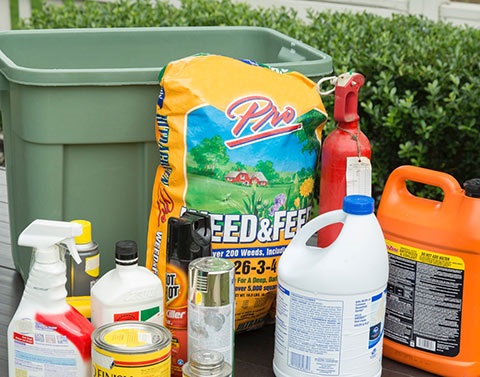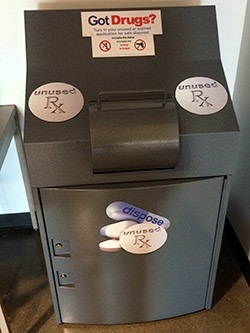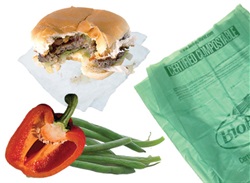Hazardous Waste - drop off at disposal sites
 Hazardous waste, including oil-based paint, CFL bulbs, batteries, chemicals, pesticides, propane tanks, and automobile fluids, do not belong in the trash. Bring them to these locations for proper disposal:
Hazardous waste, including oil-based paint, CFL bulbs, batteries, chemicals, pesticides, propane tanks, and automobile fluids, do not belong in the trash. Bring them to these locations for proper disposal:
Medicine and Sharps - drop off at disposal sites
 Do not throw away or flush unwanted medicine. Safely dispose of prescription and over-the-counter medicine at secure medicine return kiosks in Kirkland.
Do not throw away or flush unwanted medicine. Safely dispose of prescription and over-the-counter medicine at secure medicine return kiosks in Kirkland.
Sharps should be collected in a sharps container or 2-liter bottle and disposed at safe drop locations in King County, which include a drop box in Bellevue and the Shoreline Transfer Station.
Electronics - recycle next to the cart or at drop-offs
Do not throw away electronics. Recycle electronics for free with the curbside electronics recycling program or at E-Cycle Washington drop-off sites.
Food - compost in your gray food and yard cart
 While composting food is not required in Kirkland, it is strongly encourage to put wasted food in the food and yard waste cart instead of throwing it away. Food that's thrown away sits in the landfill for years before it decomposes. Food placed in the gray food and yard waste cart is composted and turned into a rich soil amendment. Composting food is a simple and impactful way to reduce a household's environmental impact.
While composting food is not required in Kirkland, it is strongly encourage to put wasted food in the food and yard waste cart instead of throwing it away. Food that's thrown away sits in the landfill for years before it decomposes. Food placed in the gray food and yard waste cart is composted and turned into a rich soil amendment. Composting food is a simple and impactful way to reduce a household's environmental impact.
Yard Waste - compost in the gray food and yard cart
Yard waste should be disposed in the gray food and yard waste cart. However, certain weeds are so important to control, and easy to spread, that they are recommended to be disposed in the garbage instead of yard waste.